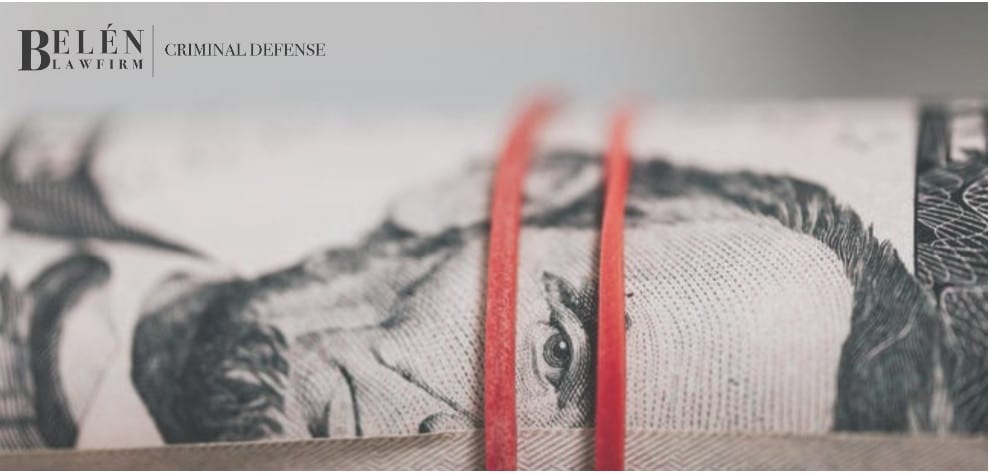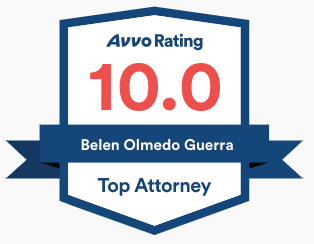A charge for a white-collar crime gets taken very seriously in the state of Arizona. If you’re charged with this crime, you face a range of penalties. One of these often includes a prison sentence. However, with an experienced Phoenix criminal attorney like Belén Olmedo Guerra, you may avoid prison altogether and receive probation instead. At Belén Law Firm, our mission is to provide the best criminal defense and achieve the least possible punishment for our clients. This includes cases of high-profile and white-collar crime. Here are some things you should know about standard probation with white-collar terms.
What is a white-collar crime?
The term “white collar” dates back to 1939. It refers to many different crimes, most relating to fraud and felony theft charges, committed by business or government officials. The intent behind these types of crimes generally relates to money and financial gain. Any illegal act committed in an attempt to acquire money, property, or services for a business or personal gain is a white-collar crime. This includes illegal measures taken to avoid losing any money, property, or services as well.
To be a white-collar crime, the crimes must have the elements of concealment, deceit, or a violation of trust. They differ from other criminal activity in the fact that they do not rely on any form of violence. Use of threats or physical force and intimidation do not apply to white-collar crime. Generally, white-collar crime does not entail contact between the perpetrator and the victim or victims.
There is a long list that pertains to the different types of white-collar crime. Some of these offenses will be a state charge, while others will get charged at the federal level. Generally, a white-collar crime is a state charge if the fraud involved a state agency or involved fraud only within the state lines. When the crime affects interstate commerce and crosses state lines, that is when it becomes a federal charge. Depending on the individual circumstances of the case, it’s possible to get charged with a white-collar crime at both the state and federal levels.
White Collar Crimes at the State Level
Here are some offenses that might occur at the state level if they occur within state lines:
- Insider Trading
- Credit Card Fraud
- Bribery
- Embezzlement
- Investment Fraud
- Money Laundering
- Auto Insurance Fraud
- Healthcare Fraud
- Probation Violations
- Unemployment Insurance Fraud
- Worker’s Compensation Fraud
White Collar Crimes at the Federal Level
Again, any white-collar crime that crosses state lines, involves a federal agency, or abuses the banking system in some way would fall under the federal level. With that in mind, here are some offenses that courts might consider a white-collar crime at the federal level.
- Antitrust Violations
- Asset Forfeiture
- Counterfeiting
- Economic Espionage
- Environmental Law Violation
- Bankruptcy Fraud
- Computer and Internet Fraud
- Corporate Fraud
- Government Fraud
- Insurance Fraud
- Mail Fraud
- Phone and Telemarketing Fraud
- Securities and Commodities Fraud
- Welfare Fraud
- Check Fraud
- Wire Fraud
- Identity Theft
- Immigration Law Violations
- Intellectual Property Theft/Piracy
- Money Laundering
- Public Corruption
- Tax Evasion
- Trade Secret Theft
How are white-collar crimes punished?
Finding the right punishment for a white-collar crime is a challenge to every judge that faces one of these defendants. The possible penalties for this offense range from fines to imprisonment. A federal charge will generally bring a much harsher punishment than that of a state charge. A comprehensive list of these punishments includes the following:
- Community Confinement
- Fines
- Forfeitures
- Home Detention
- Imprisonment
- Restitution
- Supervised Release/Probation
If the defendant admits guilt and takes responsibility from the start, sentences often get lessened. If the defendant further helps authorities with their investigation, their punishment may also decrease.
What are the terms of standard probation with white-collar crimes?
Standard probation terms can range anywhere from half a year to a lifetime. The length of probation depends on the severity of the crime. For example, a sex-related offense often brings a lifetime sentence. Meanwhile, something like a simple drug misdemeanor might only bring 6 months to a year.
So where does white-collar crime fit into this? Depending on whether your crime gets prosecuted at the state or federal level, your crime will fall into a certain offense level. In the case of a federal charge, penalties will be more severe than state charges. This offense level interprets the recommended sentence for your crime based on the act and your criminal history. You can view the sentencing table here. This table is not a given, as the decision remains left to the presiding judge’s discretion.
A federal judge may only grant probation if the offense falls into Zone A and, in some cases, Zone B of the sentencing table. If the offense is in the Zone B range, the court must apply certain conditions for the probation. This generally requires some form of intermittent or community confinement or home detention.
For state charges, most terms of probation stop at a cap of 3 years. The exceptions are for a DUI charge (5 years) or a sexually motivated offense (lifetime).
Who is subject to standard probation with white-collar crime?
The best case scenario is to avoid liability at all. However, if there is clear evidence that you are guilty, this might not be possible. The next best-case scenario is to receive a sentence of probation rather than jail time.
It is a possibility for white-collar criminals to receive probation as opposed to prison. It falls to the sentencing judge’s discretion whether someone is subject to standard probation with white-collar crime.
If your federal crime involves a predetermined minimum sentence, you may not be eligible for probation. However, if you fall into Zone A or B and have a skilled attorney on your side, you may be subject to standard probation. Should you be eligible, the judge will order you to receive the “standard terms of probation” in writing. Your attorney will review these probation terms with you.
Probation allows the defendant to remain outside of prison and within their own community. Of course, there are several conditions that the law enforces when granting probation. Those can be found here.
What factors may impact the decision for probation over imprisonment?
Aside from having a knowledgeable Phoenix white-collar crime attorney on your case, there are other factors that contribute to the judge’s decision. The first is the actual fault of the defendant. How big of a part you played in the criminal act weighs heavily on your outcome. Also, a state charge will be more likely to bring a sentence for probation than a federal charge.
Another factor that a judge considers is your character and reputation. If you clearly show remorse for your act as well as a willingness to rehabilitate, you might receive a lesser sentence or penalty.
Having a prior criminal record can also affect your punishment. If this was your first offense, that will definitely play a favorable role in court.
If you cooperate with the prosecutors and are willing to disclose important information that could assist in the investigation, this can help your case a great deal. Whether you enter a plea bargain or not also influences the decision.
Contact Belén Law Firm Today
Convicted of a white-collar crime in the Phoenix, Arizona area? You need an aggressive Phoenix criminal defense lawyer like Belén to defend your case. At Belén Law Firm, we’ve dealt with various criminal offenses, including those related to white-collar and high-profile cases. If you’re curious about the terms for standard probation with white-collar crimes, contact us today. Give us a call at 602-715-0908 or fill out a short form online to schedule a free and confidential consultation.




















